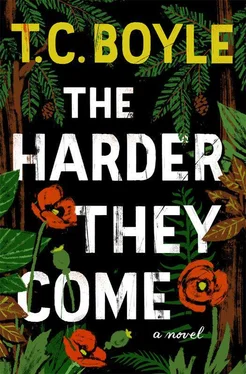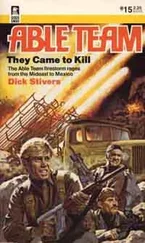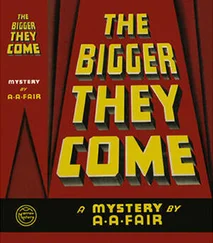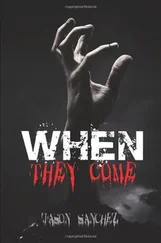Carolee wouldn’t look at him. She made a pretense of studying the chalkboard. “I want a beer,” she said.
“A beer? I haven’t seen you touch a beer in ten years.”
“All right, a wine. A pinot noir. Get me a glass of pinot noir.”
There was music playing over the sound system, a thin drift of high harmonies rising above an insistent guitar, the volume turned just low enough so that you couldn’t actually hear it except at odd intervals, though you knew it was there. He shuffled his feet. Put his hands in his pockets. He felt bad. Felt conflicted. Carolee was going to get her wine, that was as certain as the law of diminishing returns, and he was thinking he could maybe maneuver her back toward the door, as far from Adam as possible, and hope for the best. But then what was he thinking? What was wrong here? Why couldn’t they just stop by their own son’s table and say hello as if they’d drifted in at random? ( Yeah, they’d been to a movie and had a craving for pizza and what a surprise to see you here, but we won’t keep you, no, no, just go ahead and we’ll see you later, okay? ) Because Adam wouldn’t believe them, that was why. Or maybe he would. You could never tell with him.
If all this was about making a decision, it was taken out of his hands, because Sara looked up then, her eyes languidly scanning the room, till they settled on his and then Carolee’s. He watched her face change. First she looked puzzled, as if she couldn’t quite place them, but then she smiled and waved and ducked her head to say something to Adam, who seemed to stiffen in his seat. His head was down still, the muscles at the back of his neck bunched, but he didn’t move or respond. He might have been frozen in place, might have been a statue. There was a lull. The music emerged. Somebody shouted out something inane, the way people tend to do in bars. And then, very slowly, Adam turned in profile to glance over his shoulder. The look he gave them — his parents, his own parents — shaded from incomprehension to hate, to a look of such ferocious contempt you would have thought they’d come to tear the flesh from his bones. In the next moment he was up and out of the seat and hurtling down the hallway, past the kitchen, past the restrooms and right on out the back door. And Sara, the horse lady who was fifteen years older than he was and no paragon herself, gave them a fleeting apologetic smile before she snatched up her purse and hurried out after him.
But now it was morning and Sten was in the supermarket, arching his back to take the crick out of it, Carolee’s list clenched in one hand and the steak seeping blood at the bottom of the cart, getting on with his life. Eggs. Hadn’t she mentioned something about eggs? He scanned the list, her handwriting a neat rounded script that flowed like music on the page, handwriting that was as familiar as his own, but he saw no eggs listed there. What the hell, he was thinking, reaching for the carton anyway, thinking better safe than sorry, when he became aware that someone was standing right there beside him, too close for casual contact, someone who started off as a pair of running shoes and shorts climbing out of the floor and turned out to be Carey Bachman, who used to teach social studies at the school till his wife’s cosmetics business took off and made earning a paycheck extraneous. He was in his mid-forties, with a narrow slice of a face dominated by his milky protuberant eyes (“Fish-Eyes,” the students had called him behind his back) and he was dressed in a T-shirt though it was fifty-eight degrees outside and colder in here, what with the refrigerated air of the meat and dairy displays, and he should have been smiling, but wasn’t.
“Carey,” Sten heard himself say.
Still no smile. Sotto voce: “Hi, Sten.” A glance over his shoulder, conspiratorial. “Listen,” he said, “you see what’s going on here?”
See what? What was he talking about?
Carey led with his chin, eyes up, then down again, and Sten looked across the aisle to see three — no, four — Mexicans pushing a pair of overloaded carts. They were dressed in work clothes — boots, jeans, long-sleeved shirts — and each wore a brand-new Oakland A’s cap pushed back on his head with the bill jutting out at an odd angle, as if it were a fashion trend. Other than the caps, which they might have got at a ballgame at the Coliseum the night before, there was nothing to distinguish them. Three were young — teenage or early twenties — the other middle-aged. They could have been anybody. “Yeah,” he said, “I see them. What’s the deal?”
Carey gave him a look of disbelief. “What’s the deal? ‘Take Back Our Forests,’ that’s the deal. Remember, you came to the first meeting? Before you went off on vacation — on that cruise?”
It came back to him now, though so much had happened in the interval he’d completely forgotten about it, and even if he hadn’t he still couldn’t fathom what Carey was talking about. It was seven-fifteen in the morning. He’d had too much to drink the night before. The overhead light cut into his eyes. “Yeah,” he said. “So?”
“This is just what we were talking about. This. Right here. Right now.” Carey was having trouble containing himself, but he dropped his voice as the Mexicans wheeled past and turned into the next aisle over.
Sten saw that their carts were loaded with staples, four-pound bags of Calrose rice, dried pinto beans, cellophane-wrapped boxes of instant noodles and what looked to be half the ground meat in the store, but still he just stared at Carey, the moment unwinding in slow reveal. Take Back Our Forests had been Carey’s idea — his and Gordon Welch’s, who managed the local B. of A. branch — and it wasn’t a vigilante group, not at all, a designation they’d bent over backwards to deplore. No, it was a citizens’ group — an association of concerned citizens, property owners, businessmen, locals all — that had risen up spontaneously in response to what was going on in the forest. The drug cartels — La Familia, the Zetas, Sinaloa — had come north, had come here, to grow marijuana on state and federal land, bypassing the need to smuggle product across the border, and in their wake they’d brought violence to the Noyo Valley, to Big River and the Mendocino National Forest. And worse: they poisoned everything, putting out baits for rabbit, skunk, deer and bear, even poisoning the streams. The calculus was simple: a dead rabbit wouldn’t be girding the base of the plants to get at the moisture there and a dead deer wasn’t going to browse the nascent buds — or a dead bear either or a marmot or a squirrel or anything else that ate, moved and breathed — and the best way to ensure that was just to poison the drinking supply. Hikers had been shot at. Fishermen. Hunters. People were afraid to go into the woods.
“I was out for my morning run,” Carey said, and then he broke off to crane his neck and peer down the aisle. “Mules,” he said. “These are the mules. You see what they’re buying?”
Sten shrugged. “Maybe it’s a church group. Maybe they’re going on a picnic.”
“Bullshit.”
They stood there a moment, blinking in the light. Sten wanted a cup of coffee, an English muffin, maybe a soft-boiled egg — and a nap, definitely a nap. He watched a heavyset woman who looked vaguely familiar — another early-morning shopper — stump by with a handbasket bristling with celery, seven or eight bunches of it, and wondered what that was all about — cream of celery soup? Carey put a hand on his wrist. “Listen, we’ve got to follow them, you know that, don’t you? To find out where the camp is—”
“Why not just call the sheriff?”
“Don’t be naïve. There’s no law against buying groceries. And even if they’re illegal, which you damn well know they are, the cops are prohibited from checking their status — they can’t even ask because it might abridge their precious rights, to which everybody is entitled the minute they set foot in this country, whether they’re drug dealers or not. The cops are useless, you ought to know that.” He was going to say more, all ready to go off on a rant, but he suddenly stopped himself, motioning with his eyes, and here came two of them with their cart that was heaped now with peppers of every description — jalapeños, serranos, green, red, yellow, orange — and a pyramid of tortillas in the family-sized packages, twenty, thirty or more. When they’d turned down the next aisle, heading for the checkout stand, Carey let go of his wrist and lowered his voice to an urgent whisper. “You got to help me out here.”
Читать дальше












